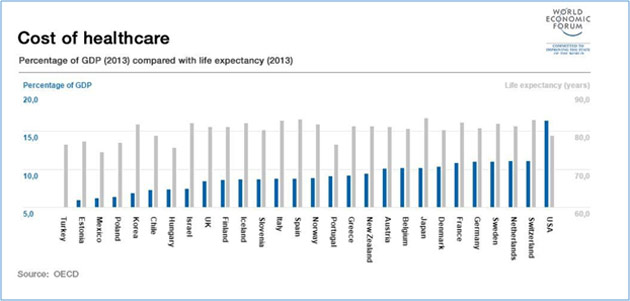Never fear, the billionaires are here. They will save us from medical bankruptcy.
Every American adult knows healthcare is ridiculously expensive. You pay through the nose for insurance premiums and even more for the deductible if you happen to get sick. Alternatively, your employer pays and recovers the cost through lower salaries. Plus, you probably pay income tax and Medicare tax.
Last week, three top CEOs said they will radically transform healthcare for their own employees—and perhaps for the entire United States.
Will it work? I’m not holding my breath. However, their idea has a new twist. And considering who came up with it, we’d best pay attention.

Photo: Getty Images
“Hungry Tapeworm” on the American Economy
A January 30 CNN report stated:
Can Jeff Bezos, Warren Buffett, and Jamie Dimon fix health care?
Amazon (AMZN) is partnering with Buffett’s Berkshire Hathaway (BRK-A) and JPMorgan Chase (JPM), the nation’s largest bank, to try to address one of the nation’s thorniest and priciest problems—soaring health care costs.
The three companies unveiled an as yet unnamed company to give their U.S. workers and families a better option on health insurance. The statement said the new company will be “free from profit-making incentives and constraints.”
“The ballooning costs of health care act as a hungry tapeworm on the American economy,” said Buffett. “We share the belief that putting our collective resources behind the country’s best talent can, in time, check the rise in health costs while concurrently enhancing patient satisfaction and outcomes.”
Their assessment is correct. We spend far more money on healthcare than other developed countries, and it buys results no better—and in some ways worse—than theirs.

Photo: World Economic Forum
The blue bars in this chart are the percentage of GDP each country spends on healthcare. The gray bars are life expectancy. The US is on the far right. We devote twice as much of our economic output to healthcare than any of the others, yet average US life expectancy is below that of 20 other countries, including Greece, Slovenia, Korea, Italy, and Israel.













Leave A Comment